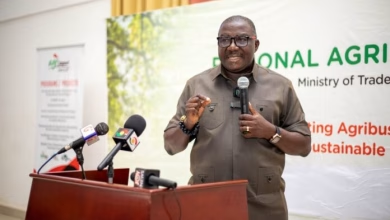Ghana’s Peasant Farmers Association (PFAG) is sounding the alarm about the slow registration process for the government’s Planting for Food and Jobs Programme Phase II (PFJ 2.0).
With the planting season already underway, nearly 80% of farmers remain unregistered as of June 2024.
PFAG President Wepia Awal Addo expressed concern that this delay leaves farmers in the dark about where and when to receive crucial supplies like fertilizer and seeds.
This lack of information hinders their ability to plan effectively for the upcoming growing season.
Mr. Addo criticized the program’s design, calling PFJ Phase II “uninspiring” due to its perceived neglect of the agricultural sector. He pointed out a lack of direct investment in farmers and the stalling of initiatives to expand irrigation and improve transportation networks, both essential for agricultural development.
Background on PFJ 2.0
Launched by the Ministry of Food and Agriculture (MOFA), PFJ 2.0 aims to address shortcomings identified in the program’s initial phase.
These included limited access to credit, a weak focus on value chains, budgetary constraints, and inadequate food storage facilities. Additionally, PFAG reports highlighted issues like smuggling, profiteering, and corruption.
The revamped program seeks to modernize agriculture by supporting specific food crop value chains and encouraging private sector involvement.
A key change is the shift from direct input subsidies to a “smart agriculture input credit system.” This aims to improve food security, resilience, and export potential, while also creating jobs within the agricultural sector.
Stakeholder Concerns
Despite the program’s March 2024 launch, concerns linger regarding timing, design, and implementation. Stakeholders criticize the reliance on “anchor farmers” for distributing inputs and services, the reduced role of central government, and the late registration process.
To address these concerns, PFAG, with support from OXFAM, conducted assessments in various regions. These consultations aimed to identify emerging issues, gaps in the rollout, and potential solutions to maximize program effectiveness.
The slow registration process and concerns about program design raise questions about the effectiveness of PFJ 2.0 in achieving its goals of food security and job creation in Ghana’s agricultural sector.
